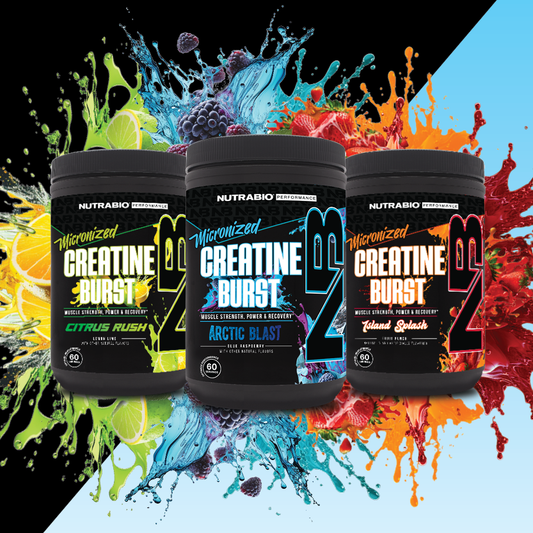Caffeine, without a doubt, is one of the best endurance enhancing supplements and is one of the most widely consumed substances in the world. Whether you get your caffeine from coffee, pre-workout, or pills the end result will be the same. You'll run faster, cycle longer, and fight off fatigue.
How Does Caffeine Work?
There are a few theories behind how caffeine enhances endurance performance. These are:
- Caffeine competes with adenosine for the adenosine receptor. When the adenosine molecule binds to this receptor we feel tired and fatigue quicker. When the caffeine molecule wins out, we feel energized, focused, and are able to push harder for longer.
- Caffeine may increase the release of calcium from the sarcoplasmic reticulum. Calcium is required for muscle contractions to occur and with more calcium available muscle contractions may continue longer before fatigue sets in.
- Caffeine may spare glycogen and promote the release of fatty acids to be used as a fuel source.
What's The Correct Dose Of Caffeine?
A meta-analysis done on caffeine and its effects on endurance performance suggest that individuals should consume 3-6mg per kg body weight. The most effective amount will vary from person to person based on habitual caffeine consumption, genetics, body weight, and metabolism. It should be noted that going above 6mg per kg body weight provides no additional benefits and may cause unwanted side effects such as jitters, anxiety, nervousness, and a racing heartbeat.
Does Caffeine Cause Dehydration?
No, this is largely a myth that came from a poorly run study done in 1960. Research has shown no diuretic effect on those habituated to caffeine. Additionally, in most circumstances, the amount of fluid consumed with caffeine results in net positive hydration (i.e. 12 oz. cup of coffee).
What's The Best Type Of Caffeine?
Research has demonstrated that caffeine anhydrous is more effective than the caffeine found naturally in such beverages as coffee or tea.
When Is the Best Time To Have Caffeine Before Endurance Exercise?
The answer to this question depends on how you are going to take it. Specifically:
- If you want to use caffeinated chewing gum take it 20 minutes before the workout.
- If you plan to drink it in the form of coffee or pre-workout, use it 30 minutes before your workout.
- If you take it in capsule or pill form, use them 60 minutes before exercise for peak performance.
- Your personal optimum timing might vary from the recommendations above based on habitual caffeine consumption and other genetic factors, so do a little human experiment on yourself to see what works best.
References:
- Bell, Douglas G., and Tom M. McLellan. "Exercise endurance 1, 3, and 6 h after caffeine ingestion in caffeine users and nonusers." Journal of Applied Physiology 93.4 (2002): 1227-1234.
- Cheng, Wendy SC, et al. "Dose‐dependent pharmacokinetics of caffeine in humans: Relevance as a test of quantitative liver function." Clinical Pharmacology & Therapeutics 47.4 (1990): 516-524.
- George, J., et al. "Influence of alcohol and caffeine consumption on caffeine elimination." Clinical and experimental pharmacology and physiology 13.10 (1986): 731-736.
- Graham, Terry E. "Caffeine and exercise." Sports medicine 31.11 (2001): 785-807.
- Joeres, Rolf, et al. "Influence of smoking on caffeine elimination in healthy volunteers and in patients with alcoholic liver cirrhosis." Hepatology 8.3 (1988): 575-579.
- Kamimori, G. H., et al. "The effect of the menstrual cycle on the pharmacokinetics of caffeine in normal, healthy eumenorrheic females." European journal of clinical pharmacology 55.6 (1999): 445-449.
- Liguori, Anthony, John R. Hughes, and Jacob A. Grass. "Absorption and subjective effects of caffeine from coffee, cola and capsules." Pharmacology Biochemistry and Behavior 58.3 (1997): 721-726.
- Ryan, Edward J. Caffeine timing and cycling performance. Diss. Kent State University, 2011.
- Smits, Paul, Theo Thien, and Albert van't Laar. "Circulatory effects of coffee in relation to the pharmacokinetics of caffeine." The American journal of cardiology 56.15 (1985): 958-963.


